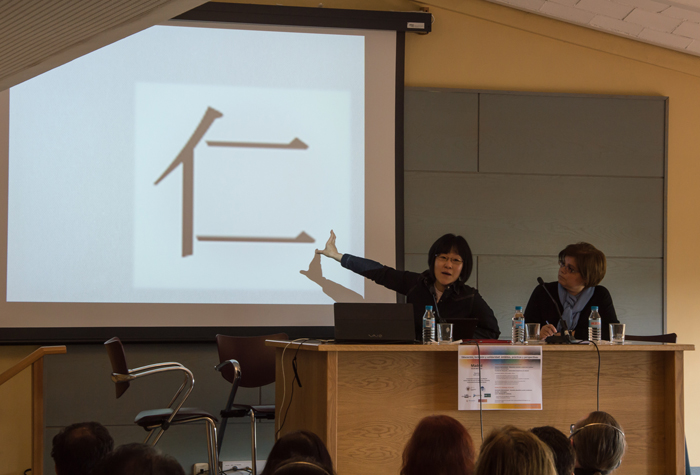
Apr 30, 2016 | Focolare Worldwide
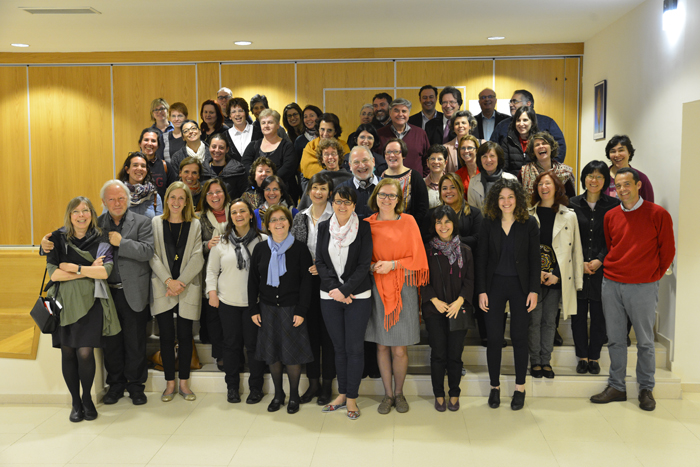 EdU (Education in Unity), an international and interdisciplinary pedagogic and educational study group got together in Spain (Luminosa Mariapolis Centre) for a seminar on inclusion, the central theme. The Educators from Brazil, Croatia, Italy, Kenya, Burundi, Slovenia, Korea, Poland, Portugal, and certainly Spain, worked on three great threads: relationships, communities, arts and sports. Thanks to live streaming on the network, the Seminar was followed by people in many parts of the world, like Benin, with talks from Argentina, Mexico and the USA. The interesting and stimulating discourses gave a framework to the experiences in really varied fields: the “love dice” put into practice in Burundi, the relationships established in the Raggio di Sole School (Croatia), and the Sevilla Autism Association (Spain)… or the effects of education in the community, and the education community. In Argentina, for example, we have the school for the aborigine community. The outcome: it is the school that revives the traditions of these century-old cultures that risk oblivion, through laboratories for goldsmiths, and the manufacture of canvases and musical instruments.
EdU (Education in Unity), an international and interdisciplinary pedagogic and educational study group got together in Spain (Luminosa Mariapolis Centre) for a seminar on inclusion, the central theme. The Educators from Brazil, Croatia, Italy, Kenya, Burundi, Slovenia, Korea, Poland, Portugal, and certainly Spain, worked on three great threads: relationships, communities, arts and sports. Thanks to live streaming on the network, the Seminar was followed by people in many parts of the world, like Benin, with talks from Argentina, Mexico and the USA. The interesting and stimulating discourses gave a framework to the experiences in really varied fields: the “love dice” put into practice in Burundi, the relationships established in the Raggio di Sole School (Croatia), and the Sevilla Autism Association (Spain)… or the effects of education in the community, and the education community. In Argentina, for example, we have the school for the aborigine community. The outcome: it is the school that revives the traditions of these century-old cultures that risk oblivion, through laboratories for goldsmiths, and the manufacture of canvases and musical instruments.  The variety of experiences presented was one of the strengths of a seminar conceived as a workshop: “here I see many people working together for the same objectives,” said one of the participants who no longer felt alone in her battles. In fact, a broader network was created, which knit the participants closer, in the certainty that “the real job has just begun.” It was also an occasion to get to know more about other international projects like Living Peace, Scholas Occurrentes and Sportmeet. As a contribution from the world of the art of education, the photographer and educator, Concha Casajús, exhibited some of her works in a video denouncing the sexual abuses perpetrated in Congo. At the end, the participants left with a greater conviction that inclusion is a lifestyle, a necessity in this complex and varied world of today, and particularly, that inclusive education is a priority in all sectors. The Seminar was preceded by a Symposium held in the Complutense University of Madrid on 22 April. Also dedicated to inclusion education, the opening speech was given by the Rector of the National University of Distance Education, Alejandro Tiana. Kishore Singh, Special Rapporteur of the United Nations on the Right to Education, contributed with a message of support to the event. The next EdU event is set for 3 and 4 June in Poland, during the International Interdisciplinary Conference on the occasion of the 20th anniversary of the h.c. “Jonh Paul II doctorate in Social Sciences” awarded to Chiara Lubich by the University of Lublin.
The variety of experiences presented was one of the strengths of a seminar conceived as a workshop: “here I see many people working together for the same objectives,” said one of the participants who no longer felt alone in her battles. In fact, a broader network was created, which knit the participants closer, in the certainty that “the real job has just begun.” It was also an occasion to get to know more about other international projects like Living Peace, Scholas Occurrentes and Sportmeet. As a contribution from the world of the art of education, the photographer and educator, Concha Casajús, exhibited some of her works in a video denouncing the sexual abuses perpetrated in Congo. At the end, the participants left with a greater conviction that inclusion is a lifestyle, a necessity in this complex and varied world of today, and particularly, that inclusive education is a priority in all sectors. The Seminar was preceded by a Symposium held in the Complutense University of Madrid on 22 April. Also dedicated to inclusion education, the opening speech was given by the Rector of the National University of Distance Education, Alejandro Tiana. Kishore Singh, Special Rapporteur of the United Nations on the Right to Education, contributed with a message of support to the event. The next EdU event is set for 3 and 4 June in Poland, during the International Interdisciplinary Conference on the occasion of the 20th anniversary of the h.c. “Jonh Paul II doctorate in Social Sciences” awarded to Chiara Lubich by the University of Lublin.
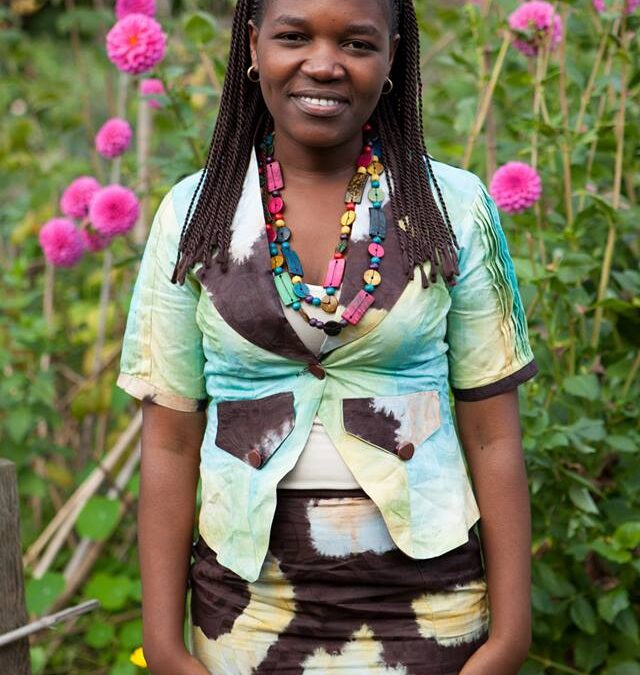
Apr 29, 2016 | Focolare Worldwide
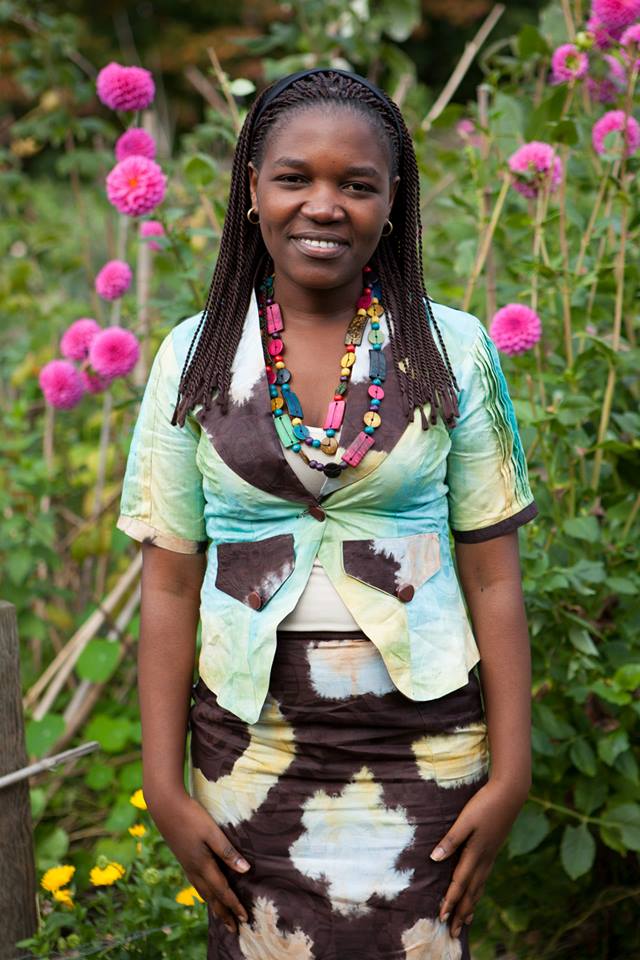
Micheline Mwendike
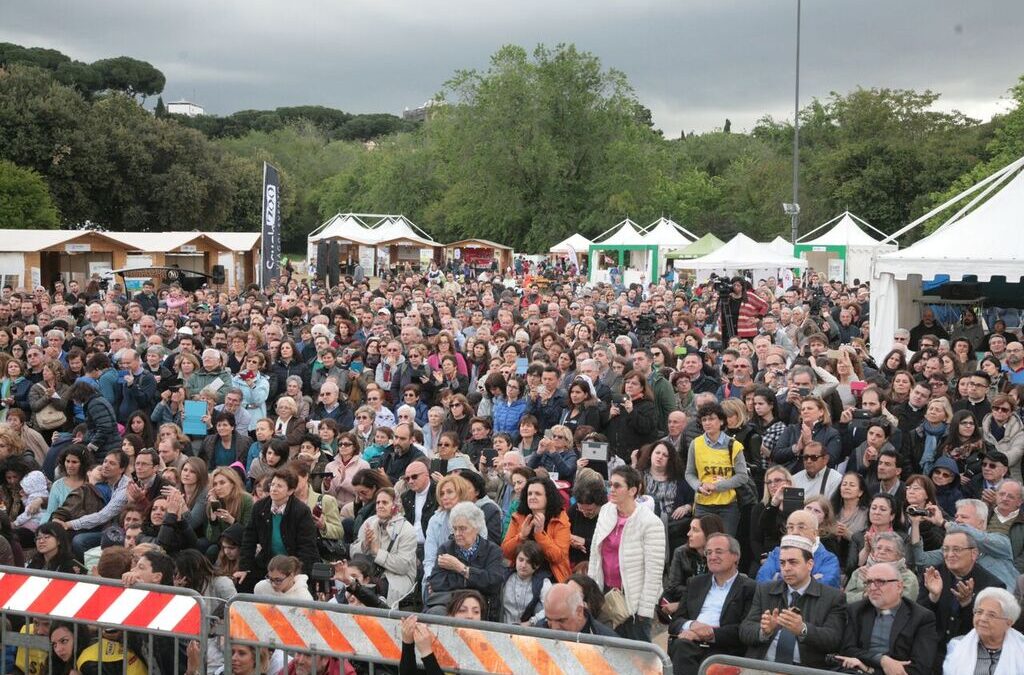
Apr 27, 2016 | Focolare Worldwide
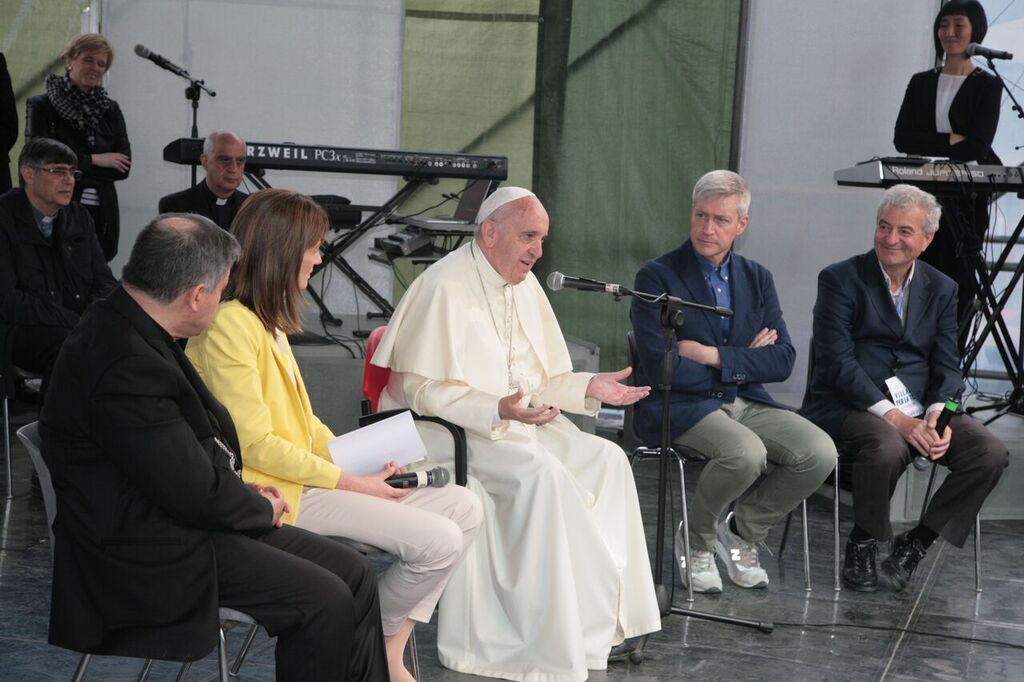
Photo: Lorenzo Russo
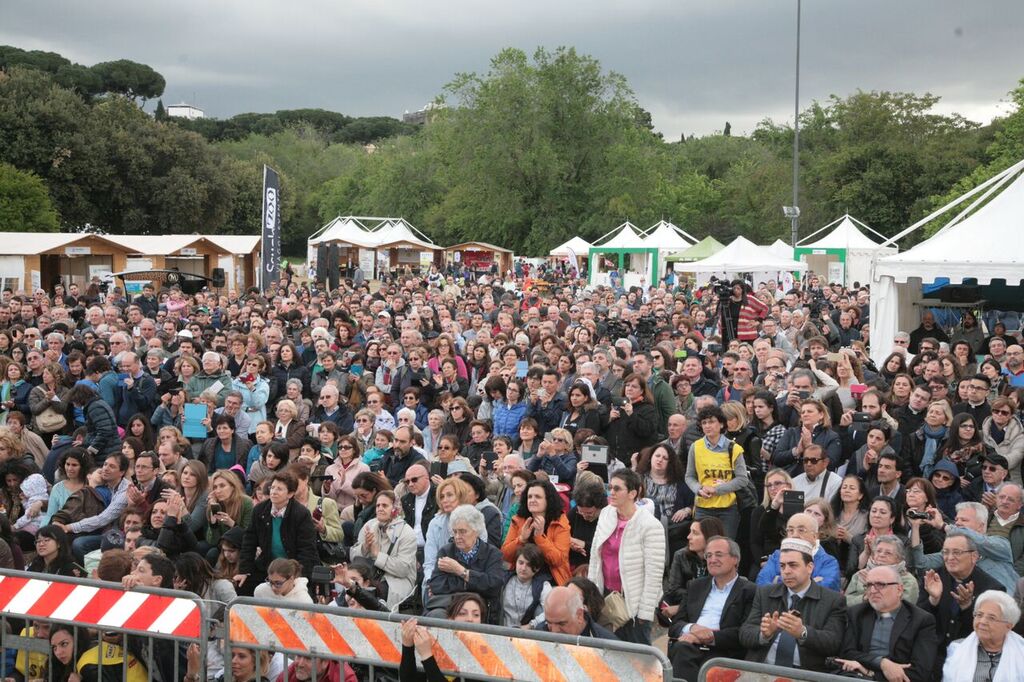
Photo: Lorenzo Russo
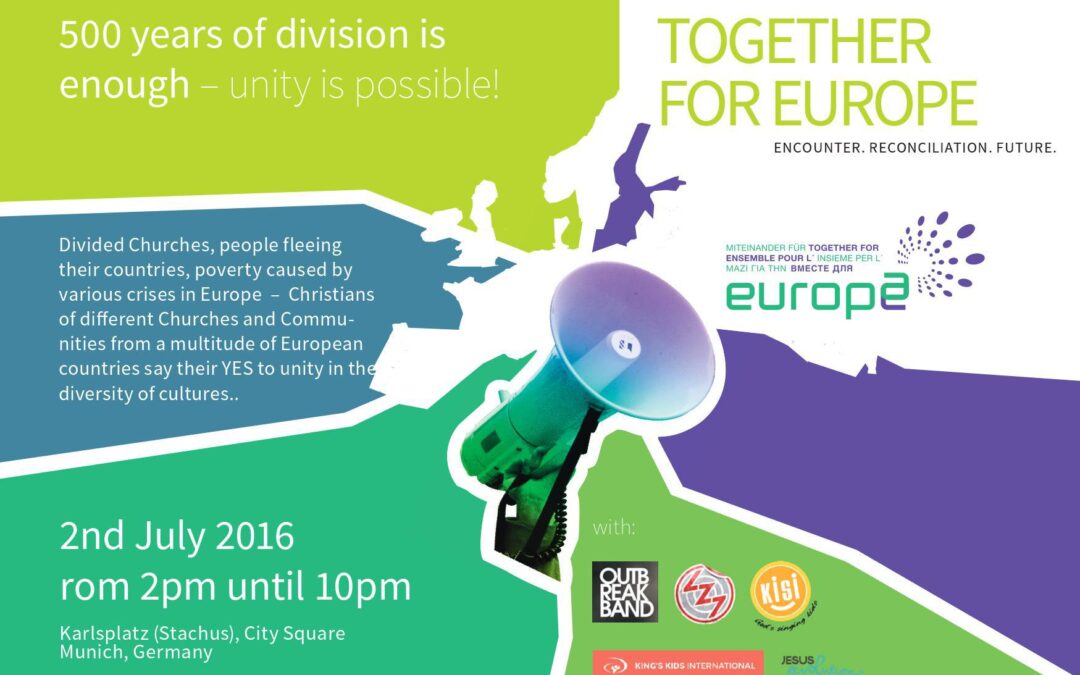
Apr 27, 2016 | Focolare Worldwide
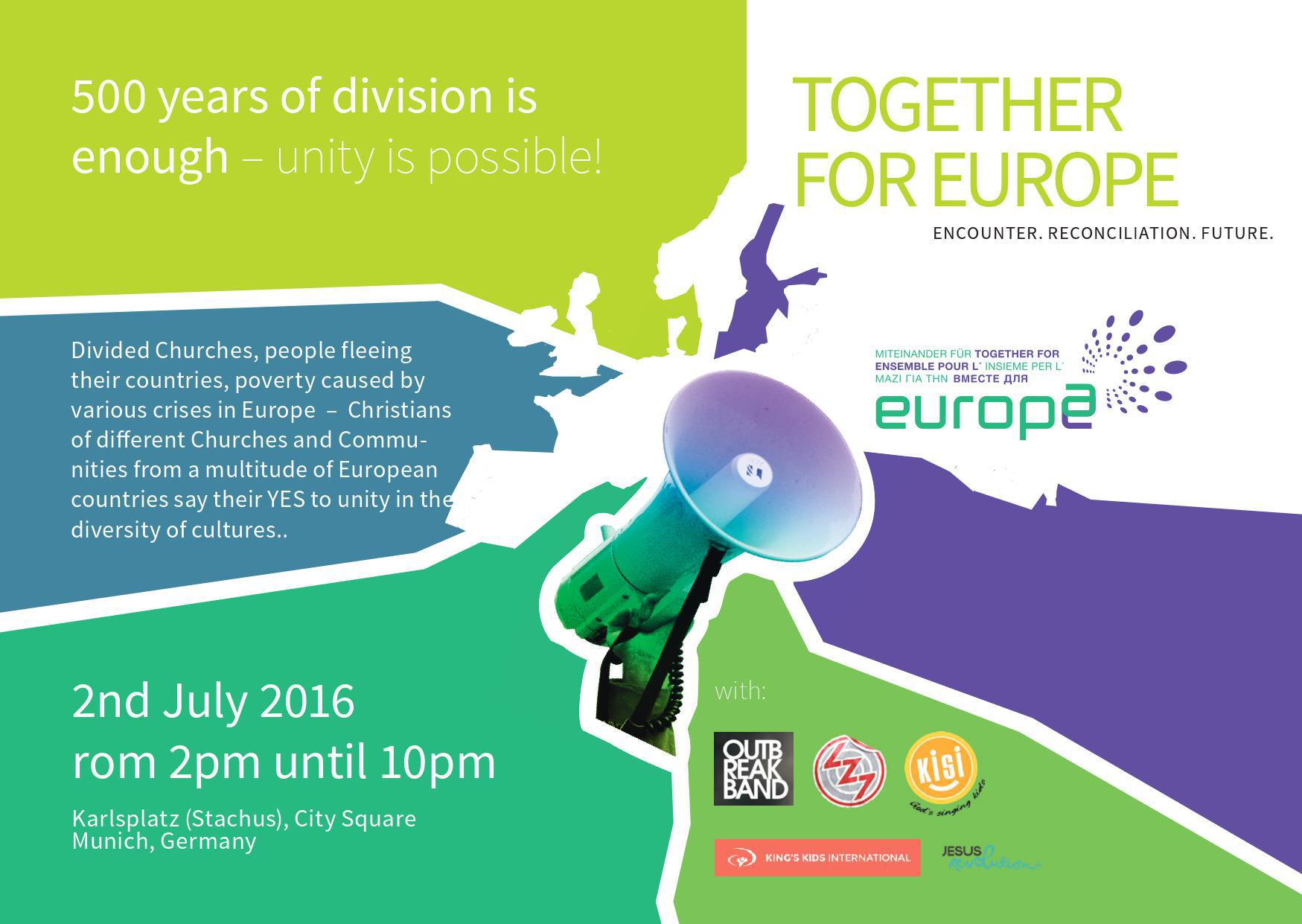 Encounter, Reconciliation, and Future, are three words that encompass the significance of the meeting in Munich at the Karlsplatz (Stachus),which was promoted by over 300 movements and communities of different Christian Churches. The objective is: to reflect together on the challenges that Europe faces, in the light of the testimonials of the network which is hidden at times, but very active and representing that part of society which commits itself to hospitality and solidarity for the most disadvantaged and weaker sections of society, so as to bridge the east and west, and overcome open or underlying conflicts. “What message does Europe have to give to the world?” When posed this question, the reply of the Focolare President, Maria Voce, concerned the objectives of the IPE: “The experience of these 2,000 years of Christianity brought about the maturation of ideas, culture, life, and actions that are necessary in the world today, and which unfortunately have not been evidenced. This is also because what is highlighted in Europe nowadays, are the difficulties, dramas, walls, and intolerance. Therefore, the good that exists is not manifested.“In the Evangelii Gaudium, Pope Francis speaks of the ‘invisible cities’ and the “connective network in which people share a common imagination, dreams about life, new human interactions that arise, and new cultures” (EG 74). «But right after this– Jesús Morán, Focolare Co-President explains – the Pope says that these invisible cities and territorial subcultures create a sort of ambivalence, and that subcultures practice segregation, violence and criminal activities. And so through fraternity inspired by love» which is the core of the message of the IPE, “We would like to show that in the good reigns in the invisible cities, and where there are virtuous practices, refugees are welcomed, and communion exists.” What are thus the expectations for this edition of the European meeting which is precisely on the eve of the 500th-year anniversary of the Reform, in a particular conjunction which sees the continent in a progressive crisis, also because of its incapacity to respond to the crisis of the migrants? We discussed it with Ilona Toth – from Hungary – and Diego Goller – an Italian, who on behalf of the Focolare Movement personally took part in the preparation for the Together for Europe event. «Recently the Orientation Committee of IEP met at the Roman headquarters of the Sant’Egidio Community, where the various movements leading this pathway converge. It was an opportunity to have another confrontation and trace an outline of our ideas. A year before the 500th anniversary of Luther’s Reform (1517-2017), we would like to show that a network of united Christians already exists, and is working among various movements and Churches», Diego Goller said. «We try to move ahead of the times and to show that in this Togetherness there is unity reached, not institutionally or theologically, but in its essence and substantial reconcilement: “500 years of division ” is, in fact, the title of one of the moments of the meeting. We are also guided by what Pope Francis and Patriarch Kirilli said in their joint declaration that the Christians of Eastern and Western Europe should unite to testify to the Gospel together.» «This is political action in the most noble sense of the term,» Ilona Toth affirmed. «The aim is to show all the good there is. Together for Europe’s prophecy lies in its name. Together is the gift of fraternity among us Christians, and on a broader range, with people of other religions and cultures. Then there comes the political side where Togetherness is achieved: charisms give concrete responses also to the political issues of cities.» And she concluded: «In Munich, we would like to show this stream of goodness which is already being put into action, and is also the fruit of the values of Christianity, developed throughout the centuries and brought to light today by the various charisms.» The event of 2 July will be preceded by a Congress of the Movements (30 June/1 July) at the Circus-Krone-Bau: 17 Forums and 19 Round Tables will involve exponents of the Churches, politics and civil society, who will discuss current issues. As a preparation for the Munich event, last 21 April in Genève at the Ecumenical Council of Churches, a round table was held, entitled “What are the identity and values of Europe?” Consult www.together4europe.org for further information. https://youtu.be/0CyLm0Nrkko Maria Chiara De Lorenzo
Encounter, Reconciliation, and Future, are three words that encompass the significance of the meeting in Munich at the Karlsplatz (Stachus),which was promoted by over 300 movements and communities of different Christian Churches. The objective is: to reflect together on the challenges that Europe faces, in the light of the testimonials of the network which is hidden at times, but very active and representing that part of society which commits itself to hospitality and solidarity for the most disadvantaged and weaker sections of society, so as to bridge the east and west, and overcome open or underlying conflicts. “What message does Europe have to give to the world?” When posed this question, the reply of the Focolare President, Maria Voce, concerned the objectives of the IPE: “The experience of these 2,000 years of Christianity brought about the maturation of ideas, culture, life, and actions that are necessary in the world today, and which unfortunately have not been evidenced. This is also because what is highlighted in Europe nowadays, are the difficulties, dramas, walls, and intolerance. Therefore, the good that exists is not manifested.“In the Evangelii Gaudium, Pope Francis speaks of the ‘invisible cities’ and the “connective network in which people share a common imagination, dreams about life, new human interactions that arise, and new cultures” (EG 74). «But right after this– Jesús Morán, Focolare Co-President explains – the Pope says that these invisible cities and territorial subcultures create a sort of ambivalence, and that subcultures practice segregation, violence and criminal activities. And so through fraternity inspired by love» which is the core of the message of the IPE, “We would like to show that in the good reigns in the invisible cities, and where there are virtuous practices, refugees are welcomed, and communion exists.” What are thus the expectations for this edition of the European meeting which is precisely on the eve of the 500th-year anniversary of the Reform, in a particular conjunction which sees the continent in a progressive crisis, also because of its incapacity to respond to the crisis of the migrants? We discussed it with Ilona Toth – from Hungary – and Diego Goller – an Italian, who on behalf of the Focolare Movement personally took part in the preparation for the Together for Europe event. «Recently the Orientation Committee of IEP met at the Roman headquarters of the Sant’Egidio Community, where the various movements leading this pathway converge. It was an opportunity to have another confrontation and trace an outline of our ideas. A year before the 500th anniversary of Luther’s Reform (1517-2017), we would like to show that a network of united Christians already exists, and is working among various movements and Churches», Diego Goller said. «We try to move ahead of the times and to show that in this Togetherness there is unity reached, not institutionally or theologically, but in its essence and substantial reconcilement: “500 years of division ” is, in fact, the title of one of the moments of the meeting. We are also guided by what Pope Francis and Patriarch Kirilli said in their joint declaration that the Christians of Eastern and Western Europe should unite to testify to the Gospel together.» «This is political action in the most noble sense of the term,» Ilona Toth affirmed. «The aim is to show all the good there is. Together for Europe’s prophecy lies in its name. Together is the gift of fraternity among us Christians, and on a broader range, with people of other religions and cultures. Then there comes the political side where Togetherness is achieved: charisms give concrete responses also to the political issues of cities.» And she concluded: «In Munich, we would like to show this stream of goodness which is already being put into action, and is also the fruit of the values of Christianity, developed throughout the centuries and brought to light today by the various charisms.» The event of 2 July will be preceded by a Congress of the Movements (30 June/1 July) at the Circus-Krone-Bau: 17 Forums and 19 Round Tables will involve exponents of the Churches, politics and civil society, who will discuss current issues. As a preparation for the Munich event, last 21 April in Genève at the Ecumenical Council of Churches, a round table was held, entitled “What are the identity and values of Europe?” Consult www.together4europe.org for further information. https://youtu.be/0CyLm0Nrkko Maria Chiara De Lorenzo
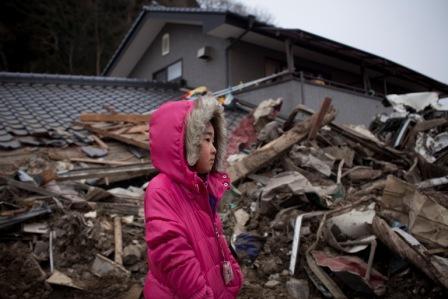
Apr 26, 2016 | Focolare Worldwide, Senza categoria
Isabel shares her state of mind following the earthquake that hit her country, Ecuador, on April 16. The physical structures that fell – bridges, buildings, houses – invite us to feel the earthquake in our own souls as well, and to ask ourselves whether we really are peace builders? I’ve realised that suffering helps to unite us. I’d like to challenge everyone during in these difficult days, to convert and become bearers of hope and optimism, that we help one another to keep faith alive.” There are 587 confirmed dead, and the wounded are more than 8 thousand, with 25 thousand displaced persons. The numbers continue to grow and it is estimated that reconstruction will cost the country billions of dollars. The Focolare Movement has begun a fundraiser for the Ecuador emergency, while they plan intervention on the ground.

Photo: United Nations
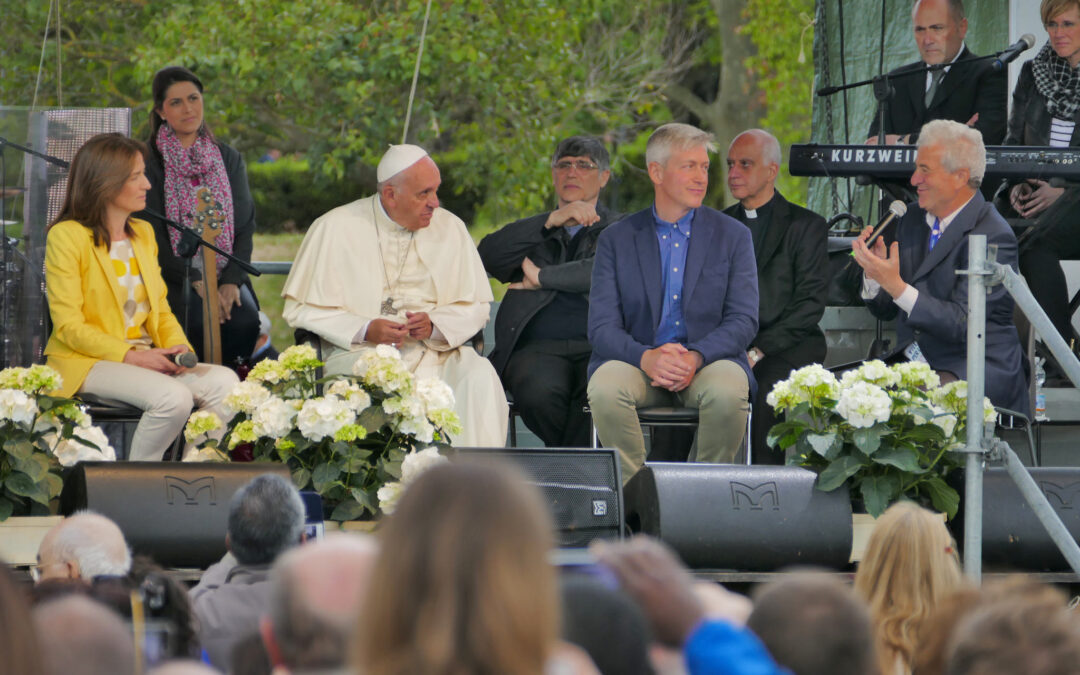
Apr 24, 2016 | Focolare Worldwide, Senza categoria

Photo: P. Gábor
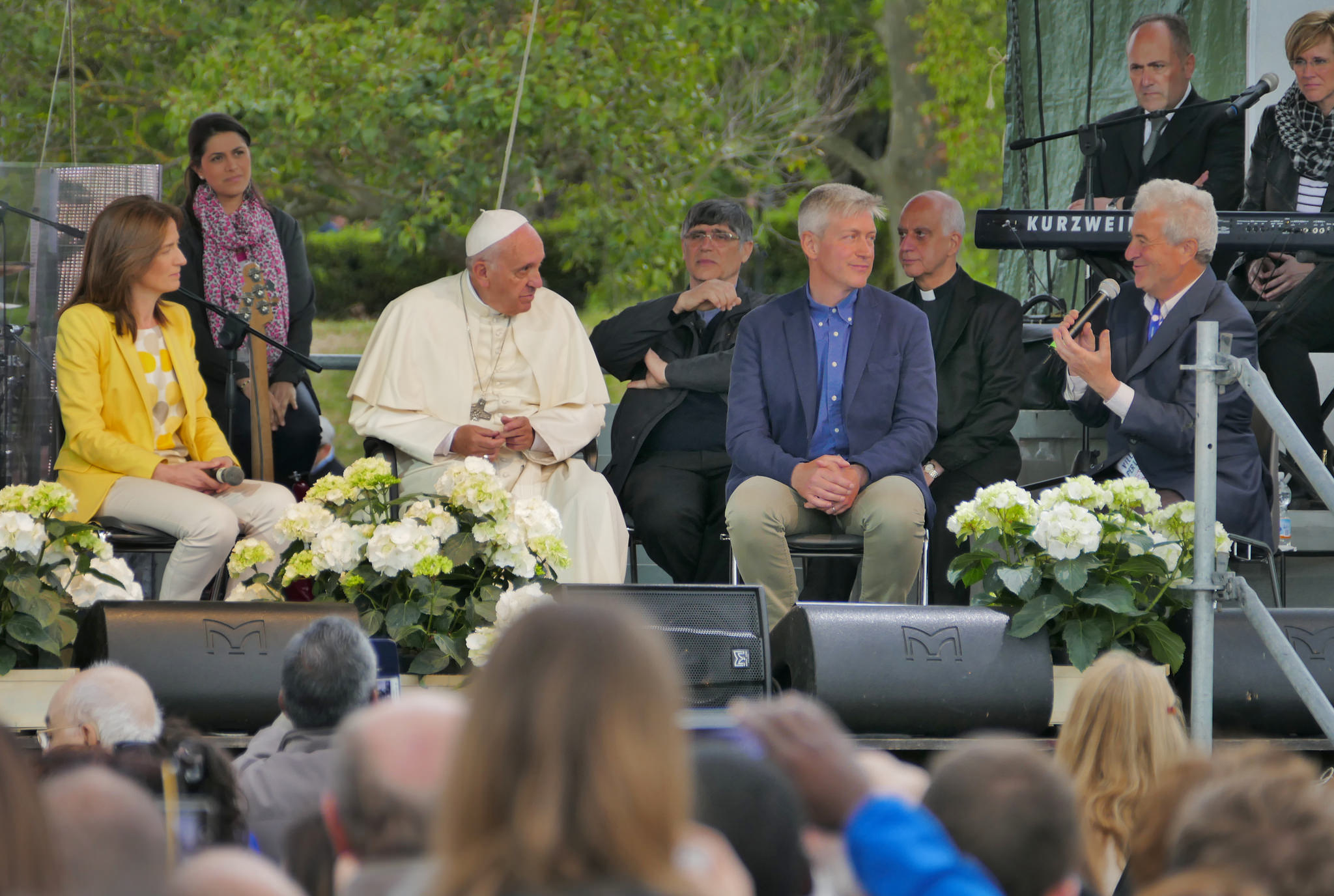
Photo: Thomas Klann
Pope Francis’s words
Press releases
https://vimeo.com/164030691 See Flickr photostream by Thomas Klann 

 EdU (Education in Unity), an international and interdisciplinary pedagogic and educational study group got together in Spain (Luminosa Mariapolis Centre) for a seminar on inclusion, the central theme. The Educators from Brazil, Croatia, Italy, Kenya, Burundi, Slovenia, Korea, Poland, Portugal, and certainly Spain, worked on three great threads: relationships, communities, arts and sports. Thanks to live streaming on the network, the Seminar was followed by people in many parts of the world, like Benin, with talks from Argentina, Mexico and the USA. The interesting and stimulating discourses gave a framework to the experiences in really varied fields: the “love dice” put into practice in Burundi, the relationships established in the Raggio di Sole School (Croatia), and the Sevilla Autism Association (Spain)… or the effects of education in the community, and the education community. In Argentina, for example, we have the school for the aborigine community. The outcome: it is the school that revives the traditions of these century-old cultures that risk oblivion, through laboratories for goldsmiths, and the manufacture of canvases and musical instruments.
EdU (Education in Unity), an international and interdisciplinary pedagogic and educational study group got together in Spain (Luminosa Mariapolis Centre) for a seminar on inclusion, the central theme. The Educators from Brazil, Croatia, Italy, Kenya, Burundi, Slovenia, Korea, Poland, Portugal, and certainly Spain, worked on three great threads: relationships, communities, arts and sports. Thanks to live streaming on the network, the Seminar was followed by people in many parts of the world, like Benin, with talks from Argentina, Mexico and the USA. The interesting and stimulating discourses gave a framework to the experiences in really varied fields: the “love dice” put into practice in Burundi, the relationships established in the Raggio di Sole School (Croatia), and the Sevilla Autism Association (Spain)… or the effects of education in the community, and the education community. In Argentina, for example, we have the school for the aborigine community. The outcome: it is the school that revives the traditions of these century-old cultures that risk oblivion, through laboratories for goldsmiths, and the manufacture of canvases and musical instruments.  The variety of experiences presented was one of the strengths of a seminar conceived as a workshop: “here I see many people working together for the same objectives,” said one of the participants who no longer felt alone in her battles. In fact, a broader network was created, which knit the participants closer, in the certainty that “the real job has just begun.” It was also an occasion to get to know more about other international projects like Living Peace, Scholas Occurrentes and Sportmeet. As a contribution from the world of the art of education, the photographer and educator, Concha Casajús, exhibited some of her works in a video denouncing the sexual abuses perpetrated in Congo. At the end, the participants left with a greater conviction that inclusion is a lifestyle, a necessity in this complex and varied world of today, and particularly, that inclusive education is a priority in all sectors. The Seminar was preceded by a Symposium held in the Complutense University of Madrid on 22 April. Also dedicated to inclusion education, the opening speech was given by the Rector of the National University of Distance Education, Alejandro Tiana. Kishore Singh, Special Rapporteur of the United Nations on the Right to Education, contributed with a message of support to the event. The next EdU event is set for 3 and 4 June in Poland, during the International Interdisciplinary Conference on the occasion of the 20th anniversary of the h.c. “Jonh Paul II doctorate in Social Sciences” awarded to Chiara Lubich by the University of Lublin.
The variety of experiences presented was one of the strengths of a seminar conceived as a workshop: “here I see many people working together for the same objectives,” said one of the participants who no longer felt alone in her battles. In fact, a broader network was created, which knit the participants closer, in the certainty that “the real job has just begun.” It was also an occasion to get to know more about other international projects like Living Peace, Scholas Occurrentes and Sportmeet. As a contribution from the world of the art of education, the photographer and educator, Concha Casajús, exhibited some of her works in a video denouncing the sexual abuses perpetrated in Congo. At the end, the participants left with a greater conviction that inclusion is a lifestyle, a necessity in this complex and varied world of today, and particularly, that inclusive education is a priority in all sectors. The Seminar was preceded by a Symposium held in the Complutense University of Madrid on 22 April. Also dedicated to inclusion education, the opening speech was given by the Rector of the National University of Distance Education, Alejandro Tiana. Kishore Singh, Special Rapporteur of the United Nations on the Right to Education, contributed with a message of support to the event. The next EdU event is set for 3 and 4 June in Poland, during the International Interdisciplinary Conference on the occasion of the 20th anniversary of the h.c. “Jonh Paul II doctorate in Social Sciences” awarded to Chiara Lubich by the University of Lublin.











